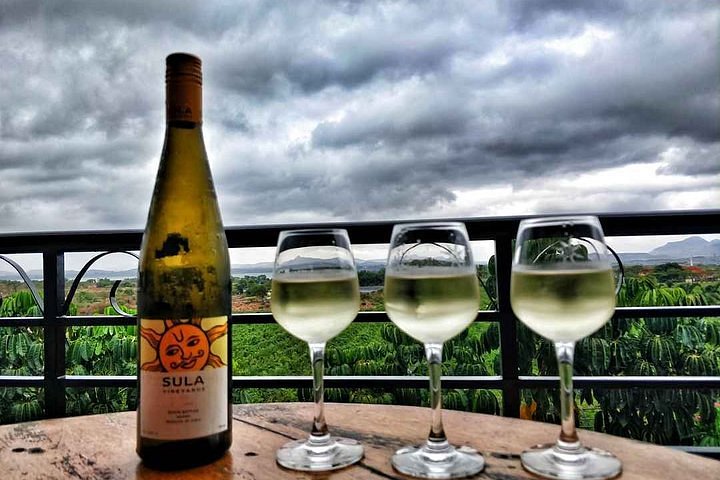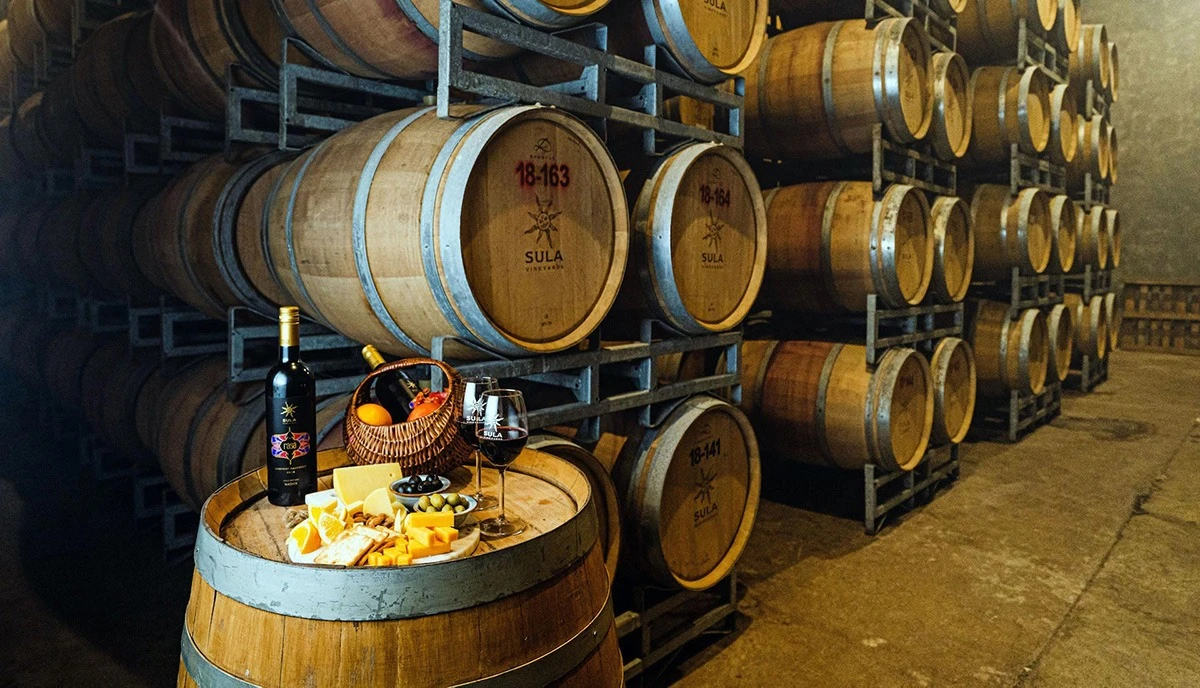Sula Vineyards, India’s leading producer of wines is located amidst the rolling hills of Nashik overlooking the Gangapur Dam. The company is one of the top wine brands in India that clocks a turnover of almost Rs 500 crore.

Source- Trip Advisor
Winemaking is a laborious process. Moreover, maintaining its taste, texture and flavour is all the more challenging an endeavor.
Sula Vineyards was founded by Rajeev Samant. After working abroad for a few years, he came back to India with the intention of starting something of his own. In 1996, he realized that he wanted to get into the wine business and realized that Nashik had the perfect climate for growing wine grapes.
From having sold its first wine bottle in 2000, Sula has leaped to become a prominent player in the winemakers’ scenario. Today, Sula’s brands enjoy better positioning when compared to more established players and Samant states that Sula holds close to 65 percent of the available market share in India.
It took Sula over two years to obtain the necessary license to start making wine. “Marketing was also a challenge. Not only were Indian wines not heard of, but they were also more expensive than some imported wines sold in India,” said the CEO of Sula Vineyards.

Source- Dailyo
Over 95 percent of the wines are made to be consumed in the first couple of years, particularly the white wine. Very few wines are kept to be aged for that long. Sula Rasa and Cabernet Sauvignon are examples of wines that can be aged for more than 10 years. It exports to almost 30 countries including the US, Australia, and Italy. Currently, Sula has two main wineries in Nasik and Dindori, Maharashtra while it has taken over three other custom crush facilities in Nasik and one in Karnataka. So far, Sula has gone through three private equity rounds, where the funds have been used for building new winery capacity.
One of Sula’s open secrets has been its clever approach to marketing. At the core of any of its marketing exercises is the pride in being known as an Indian wine. “We are proudly Indian and while others claim to be French in nature, we were clear we wanted Sula to stand out as a wine that took pride in being Indian. I also think it was the right time when Indians were expressing their affinity for all things Indian,” says Samant.





















































































